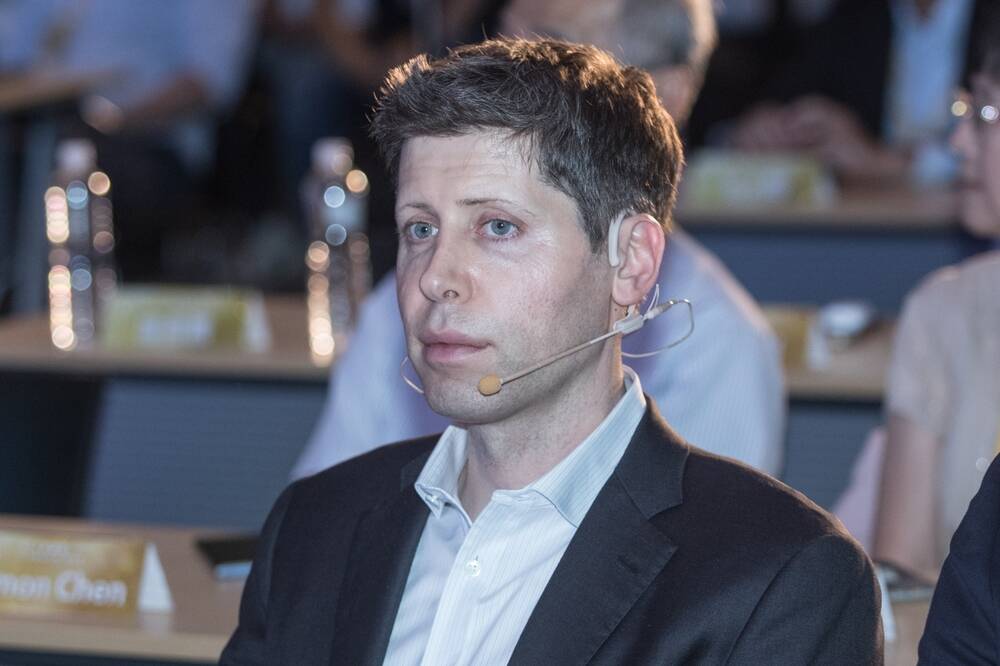Now OpenAI CEO Sam Altman Wants Billions For AI Chip Fabs

OpenAI CEO Sam Altman is reportedly seeking billions of dollars in capital to build out a network of AI chip fabs.
Citing multiple unnamed sources familiar with the matter, Bloomberg said on Friday Altman has approached several outfits, including Abu Dhabi-based G42 and Japan's Softbank, to help make it happen.
Microsoft, OpenAI's biggest champion, has reportedly shown interest in the project, which would fund the construction and operation of chip factories around the world to support growing demand for neural network accelerators. The goal of the program appears to be this: build enough assembly lines to ensure there is a healthy supply of AI processors to meet demand.
Altman, whose super-lab is rumored to be developing an AI accelerator of its own, has previously expressed concerns that there aren't enough processors to go around. With world-plus-dog jumping on the machine-learning bandwagon, we could agree with that. Meta just indicated it wants 350,000 Nvidia accelerators by the end of year to drive its AGI work.
If there aren't enough processors to train and run models to meet user demand, remote services may suffer from slow downs, rationing, or limited deployment, which isn't a great customer experience. Those hoping to use the tech on their own infrastructure may be unable to easily source the parts they need.
The certification group Uptime Institute echoed those fears in its latest analysis, warning that while AI will remain hot in 2024, inadequate silicon supply is likely to hamper wide-scale deployments.
Funding a single fab project - let alone a network of facilities - won't be an easy or cheap endeavor. A single chip factory can cost anywhere from $10 billion to $20 billion, depending on the location and planned capacity. Intel's two fabs in Arizona are expected to cost $15 billion apiece, while TSMC expects its factory project, located nearby, to run to about $40 billion.
What's more, these facilities can take anywhere from four to five years to complete, assuming workforce shortages don't cause delays, as we've seen lately.
It doesn't appear that OpenAI is trying to get into the foundry game. Instead, it appears the plan is to funnel any funds raised into leading-edge chip manufacturers like TSMC, Samsung Electronics, and potentially Intel. In effect, OpenAI would be gathering up billions to get these fabrication giants churning out parts for artificial intelligence.
TSMC is likely the prime candidate as Nvidia, AMD, and Intel's GPUs and AI accelerators are all manufactured in its plants. And, while Nvidia has previously used Samsung facilities for some of its last-gen parts, those components haven't relied as heavily on advanced packaging technology.
- Did all that AI chatbot hype boost Bing's market share? Oh, wait, never mind
- Has the semiconductor down cycle reached its nadir? TSMC thinks so
- Will AI take our jobs? That's what everyone is talking about at Davos right now
- Global semiconductor revenues slid 11 percent in 2023, despite AI silicon splurge
While demand is expected to outstrip the supply of AI accelerators through much of 2024, it may not be a lack of fab capacity holding things up.
Based on comments made by TSMC chairman Mark Liu late last year, investing in advanced packaging facilities rather than additional foundry capacity may address supply bottlenecks faster.
Liu said in September that TSMC has more than enough foundry capacity to keep up with AI chip demand, rather the holdup was a lack of chip-on-wafer-on-substrate (CoWoS) packaging capacity. The packaging tech is used to stitch together compute and high-bandwidth memory modules commonly found on AI accelerators.
It's our understanding that these packaging facilities don't take quite as long to build and are considerably less costly. Last July, TSMC announced an advanced packaging facility in Taiwan valued at $2.9 billion. TSMC says the facility should be fully operational in about three years.
Considering this, we suspect Altman and his partners will need to invest in a combination of fabrication and packaging facilities, if they really want to address AI chip supply constraints. ®
From Chip War To Cloud War: The Next Frontier In Global Tech Competition
The global chip war, characterized by intense competition among nations and corporations for supremacy in semiconductor ... Read more
The High Stakes Of Tech Regulation: Security Risks And Market Dynamics
The influence of tech giants in the global economy continues to grow, raising crucial questions about how to balance sec... Read more
The Tyranny Of Instagram Interiors: Why It's Time To Break Free From Algorithm-Driven Aesthetics
Instagram has become a dominant force in shaping interior design trends, offering a seemingly endless stream of inspirat... Read more
The Data Crunch In AI: Strategies For Sustainability
Exploring solutions to the imminent exhaustion of internet data for AI training.As the artificial intelligence (AI) indu... Read more
Google Abandons Four-Year Effort To Remove Cookies From Chrome Browser
After four years of dedicated effort, Google has decided to abandon its plan to remove third-party cookies from its Chro... Read more
LinkedIn Embraces AI And Gamification To Drive User Engagement And Revenue
In an effort to tackle slowing revenue growth and enhance user engagement, LinkedIn is turning to artificial intelligenc... Read more

